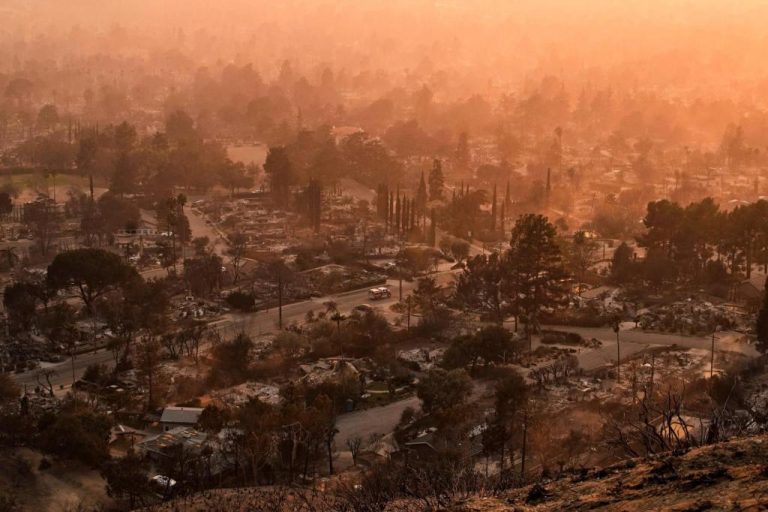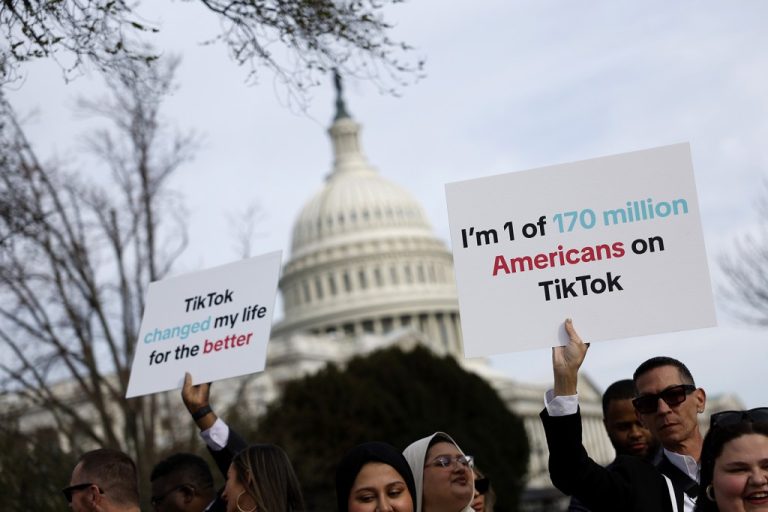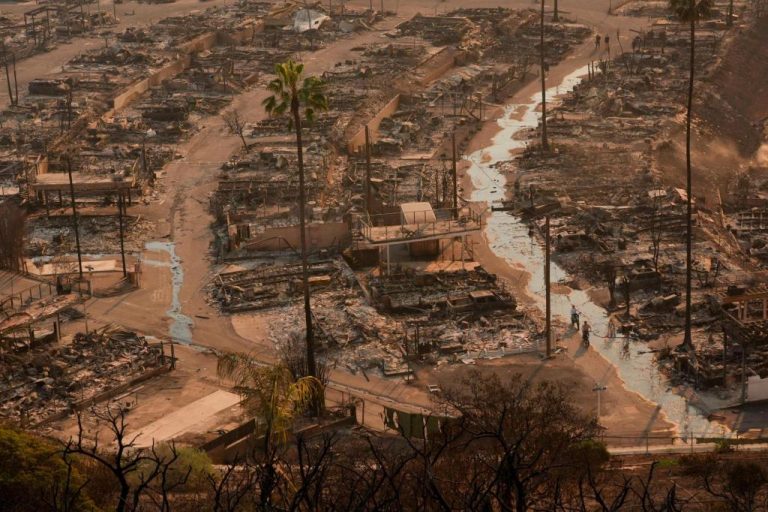Geneviéve Jones-Wright is an attorney, criminal justice reform advocate and Democrat who is challenging Mayor Todd Gloria for re-election.
To help inform voters, the San Diego Union-Tribune asked all the candidates a series of the same questions about their priorities, positions and campaigns. Their emailed answers have been lightly edited for clarity.
Why are you running, and what makes you the best candidate?
San Diego needs change, and I am the changemaker the work requires. My extensive and varied experience in public service and advocacy has uniquely prepared me to be mayor. As a public interest attorney, I’ve already influenced city policies both from within and outside of government structures. I have the vision, courage and proven leadership skills necessary to tackle our most pressing issues head-on.

As a nonprofit executive, I understand the importance of responsible stewardship of taxpayer funds; I’m committed to ending wasteful practices while promoting transparency and accountability in government.
As a mother and daughter of a retiree on a fixed income, I am acutely aware of the challenges faced by San Diegans due to the ever-increasing high cost of living. My goal is to create a city where everyone can thrive — no matter your ZIP code. I am committed to building a better future for all San Diegans.
What are the top 3 issues facing the city?
Our top issues are deeply interconnected and exacerbate one another.
First, homelessness has surged alongside our housing shortage. The lack of affordable housing options contributes directly to the homelessness epidemic, as people struggle to secure stable housing.
Second, San Diego’s growing unaffordability exacerbates both the homelessness crisis and the housing shortage, as skyrocketing living costs push more residents to the brink of homelessness while making it increasingly difficult for lower-income individuals and families to find affordable housing.
Finally, mishandling of public funds further hinders efforts to address these pressing issues. Funds that could be allocated toward solutions and displacement prevention are diverted elsewhere due to mismanagement. The recent floods that displaced thousands of San Diegans drives this point home poignantly: Had the city not diverted funds from our storm drain system to (over)pay for 101 Ash Street, this tragedy could have been avoided altogether or at the very least mitigated.
What are the first 3 things you would do in office if elected?
As the newly elected mayor, I would meaningfully meet with key stakeholders. I would meet with the head of every department and division to (1) collaboratively set benchmarks and goals that contribute to the overall vision for our city, ensuring that everyone is working towards common objectives, and (2) tap into their oft-ignored expertise and insight to tackle our budget shortfalls and infrastructure needs. I would engage every council member individually to understand their constituents’ priorities and ensure they’re adequately addressed in future budget and policy decisions.
I would assemble a skilled team of experts and consultants from diverse industries and fields to advise me.
I would review the recommendations of city-commissioned studies, like the 2016 San Diego State University traffic stop study and 2023 pay equity study, and work with our City Council to implement them. We must ensure fair and equitable treatment for all city workers and every San Diegan.
Do you support a 1-cent general city sales tax increase, and/or a half-cent county sales tax increase that would fund transportation? Why or why not?
No. The burden of multiple tax increases hitting San Diegans simultaneously is a big concern. Each tax increase may seem minor, but when combined, they significantly strain families’ finances, which is especially concerning given San Diego’s already high cost of living. We already grapple with the challenges of living in America’s most expensive city. Tax increases exacerbate this, making it even more difficult for individuals and families to make ends meet, save for the future, or invest in their quality of life. While I acknowledge the necessity of funding vital projects, relying solely on increased taxes is not the solution.
What should the city do to combat its housing crisis?
The housing crisis is a complex issue and requires a multifaceted solution. We should explore how to modify and manage current programs and regulations, as well as add new inducements to promote housing creation and homeownership.
Solutions include:
— Closing loopholes that get in the way of building “affordable housing” at our highest potential
— Developing housing that is truly affordable
— Workforce housing development
— Rental assistance programs
— Property tax incentives
— Zoning and land use reform
— Revisiting single-room-occupancy policies
— Evaluating short-term rental policies
— Homebuyer assistance programs
— Implementing regulations to rein in the corporate takeover of our rental market
— Ending “pay-to-play” practices at City Hall
— Leveraging public lands
How should public safety and civil liberties be balanced when it comes to homelessness enforcement, behavioral health policy and police surveillance?
We must have a broader definition of “public safety” that includes protection against unjust government actions and policies to ensure that all communities are treated equitably and are shielded from disparate treatment.
There is no balance to “homelessness enforcement.”
Behavioral health policies must center civil liberties to treat individuals with human dignity, acknowledging the complexity of mental health and substance use issues.
Respecting oversight and accountability mechanisms put in place to manage government use of surveillance technology is crucial to public safety and protecting civil liberties. We need checks against abuses of power and encroachment on individual rights and freedoms.
Recent flooding has brought new attention to failures of city infrastructure, and how the effects of climate change can disproportionately impact poorer neighborhoods and communities of color. How should the city combat this?
The recent flooding highlights the urgent need to address our infrastructure failures, systemic neglect of marginalized communities and the disproportionate impact of climate change on our underserved neighborhoods. Accordingly, the city must prioritize inclusive climate action, as climate justice is integral to racial justice. We must take our Climate Action Plan seriously and also invest in equitable outcomes.
Additionally, the city must heed the advice of the experts whose jobs are to help guide its decision-making. These measures will not only mitigate the immediate impacts of climate change but also address systemic inequalities that exacerbate its effects on vulnerable communities.
San Diego faces a big budget crunch, along with a nearly $5 billion infrastructure funding shortfall. Where would you propose cutting, where should more revenue be sought, and what else should the city do?
I would strategically make cuts in our spending, add new revenue streams and capitalize on current ones more efficiently. Budget adjustments would involve determining where we can delay non-critical projects and reduce spending without affecting essential services. To increase revenue, we would retrieve uncollected revenue from franchisees, permittees and lessees and initiate public-private partnerships to infuse capital.
We must utilize Measure C and leverage our transient occupancy tax funds to impact critical areas sustainably. We must secure infrastructure funding through state and federal grants, align spending with public priorities and enforce fiscal responsibility to maximize every dollar for San Diego’s benefit.





